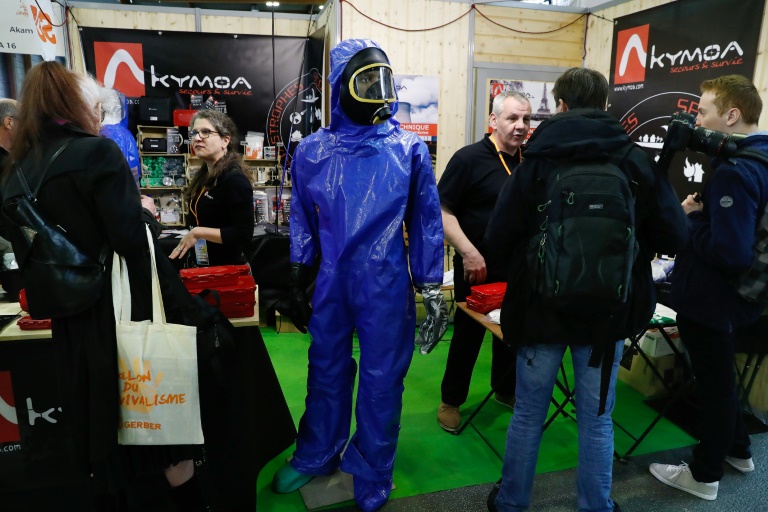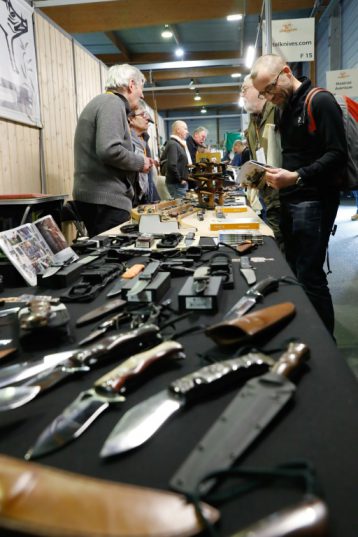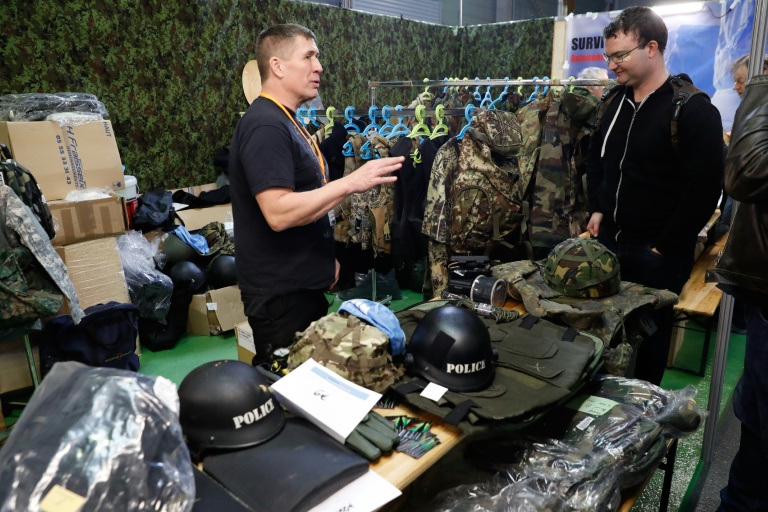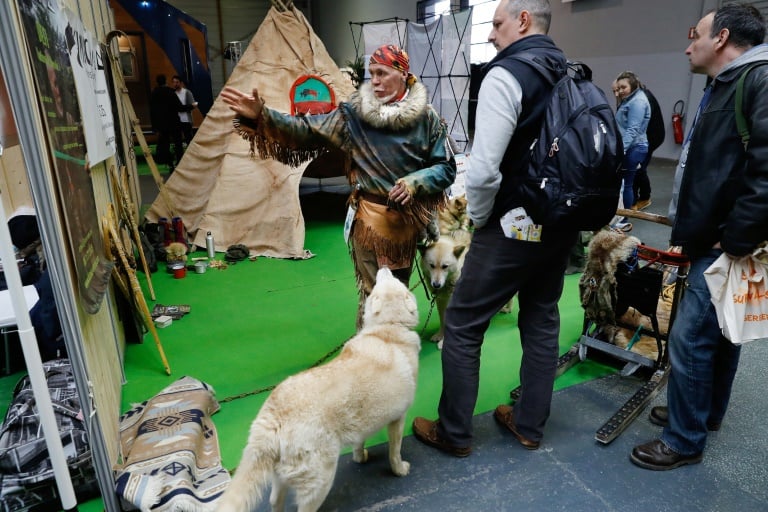Game over for Ndlozi in the EFF as party concludes third NPA
“I’m preparing myself for risks, floods, earthquakes, avalanches or social breakdown,” says the sixty-something father, hunter and self-styled survivor from the French Alps.
Daniel, who has been prepping for the worst since leaving the military 20 years ago, is one of a growing cohort of nature buffs joining “survivalist” movements seeking reduced reliance on authorities should disaster strike.
“Throughout society we are dependent on infrastructure and supply chains that are fragile and can be destabilised by things we can predict,” says Clement Champault, organiser of France’s first survivalist expo, which runs this weekend in Paris.
“We’re not talking about a zombie apocalypse — aliens aren’t going to land — we’re talking about real risks: natural disasters, sabotage, attacks and even financial and economic crises,” he tells AFP.
Inside the expo, men in khakis and cargo pants peruse rows of steel-framed gazebos displaying animal traps, food rations, solar panels and — for the off-gridder who has everything — hazmat suits and radiation detectors.
In one corner a man throws axes at a wooden target from increasingly improbable distances while another man dressed vaguely like an eskimo lets punters pet his huskies.

‘Preppers’ say they just want to be prepared in the event of attack or sabotage — including chemical weapons
The survivalist movement grew in 1960s America from the fear of nuclear war or Soviet invasion, according to Bertrand Vidal, sociology professor at Paul Valery University, Montpellier.
“Today these people don’t necessarily identify with an existential threat, it can be a mixture of fears that punctuate their daily lives,” he says.
Initiates believe their concerns are borne out by the high number of extreme weather events in recent years.
In France, where a string of terror attacks since 2015 has left hundreds dead, there is a growing lack of faith among some in the state’s ability to keep people safe.
– ‘Obliged to protect ourselves’ –
“If I told you 10 years ago there’d be all these people killed on the streets of Paris, you’d have said I’m crazy,” says Laurent Berrafato, publisher of the “Survival” trade magazine.
“But unfortunately that’s the reality. Now people are asking themselves: ‘If we’re all alone what can we do about it?’.”

Unlike similar US expos, there are no guns for sale in Paris, but knives are easy to buy
Aside from survival wares, the expo has stalls with names like “Ground Force” and “YShoot” flogging a variety of unpleasant-looking self-defence implements. Tasers, bulletproof vests, axes, throwing stars and knives — lots of knives — are all openly on sale.
The branding is unashamedly macho, but movement members insist their version of survivalism is a far cry from the US stereotype of a trigger-happy recluse stashed in his gun-filled bunker.
Unlike similar US shows, there’s not a firearm on display in Paris.
“These images of Americans armed to the teeth are problematic. But if there’s a rupture and people no longer respect the law, average citizens are obliged to protect themselves,” says Daniel, who admits to owning a pistol and a shotgun, both legally registered.
– ‘Far-right’ taint –

A variety of self-defence tools were on sale at the Paris event
The survivalist movement has another image problem: its origins are intertwined with the American far-right from which it sprang, and sociologist Vidal says there are still members who identify with the xenophobic worldview of its founders.
“There’s still this image of the mad man who wants to kill everyone,” he says. “It’s not gone away, but the targets have shifted. They no longer fear the USSR but rather mass immigration.”
But many survivalists — most prefer the term “preppers” — simply want an easier, greener existence.
“We’re looking for greater freedom. We’re preparing for normal life, not some catastrophe or the end of the world,” says Marie Guillanmin, 30, from near Lyon.
The last 12 months saw a barrage of storms batter the Caribbean and US eastern seaboard, leaving thousands of homes without water or power.
Preppers insist the risks from natural disaster can be reduced with a little common sense, training and scout-like readiness. And a knife or two wouldn’t hurt, either.

Many survivalists insist they just want a greener life with less reliance on the state
“The weapons are part of the equipment,” says Daniel. “You need physical and psychological training and equipment — but equipment means nothing without knowhow.”
Download our app and read this and other great stories on the move. Available for Android and iOS.